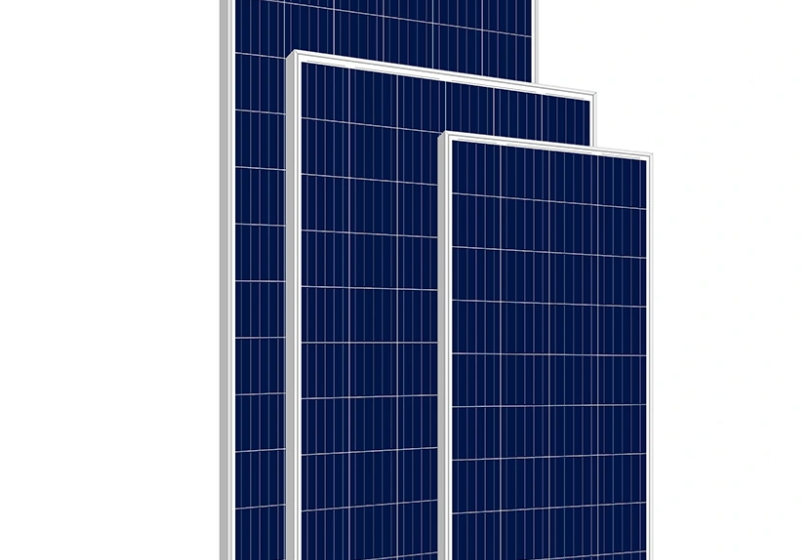Understanding the 200W Solar Panels
Introduction
In recent years, solar energy has gained tremendous traction as a sustainable and cost-effective power source. Among the various solar panel options available, the 200W solar panel stands out for its balance of efficiency, size, and versatility. This article delves into the characteristics of 200W Solar Panels, their benefits, applications, and key considerations when choosing the right panel for your solar energy needs.
What is a 200W Solar Panel?
A 200W solar panel is designed to convert sunlight into electricity, with a peak power output of 200 watts under optimal conditions. These panels typically consist of multiple solar cells made from photovoltaic (PV) materials, which generate electricity when exposed to sunlight. The efficiency and performance of a 200W panel can vary based on factors such as the type of solar cells used, the quality of the materials, and environmental conditions.
Components of a 200W Solar Panel
- Solar Cells: The heart of the panel, solar cells convert sunlight into electrical energy. Most 200W panels use monocrystalline or polycrystalline cells, with monocrystalline cells generally offering higher efficiency.
- Glass Cover: A protective layer that shields the solar cells from environmental damage while allowing sunlight to penetrate.
- Aluminum Frame: Provides structural support and durability, ensuring the panel can withstand various weather conditions.
- Backsheet: The rear layer that protects the solar cells and enhances the panel’s durability and insulation.
- Junction Box: Houses the electrical connections and allows for the safe transfer of electricity from the solar cells to the external circuit.
Benefits of 200W Solar Panels
1. Space Efficiency
200W Solar Panels are compact compared to higher-wattage options, making them ideal for installations where space is limited. They can be easily integrated into residential rooftops, small off-grid systems, and portable setups.
2. Affordability
Generally, 200W panels are more affordable than larger panels, making them accessible for homeowners and small businesses looking to invest in solar energy. This cost-effectiveness allows for gradual scaling of solar installations.
3. Versatility
These panels can be used in various applications, from residential rooftops to RVs, boats, and small off-grid systems. Their adaptability makes them suitable for diverse energy needs.
4. Ease of Installation
Due to their smaller size and lighter weight, 200W panels are easier to handle and install. This reduces labor costs and makes DIY installations more feasible.
5. Environmental Impact
Using solar panels contributes to reducing carbon emissions and reliance on fossil fuels. By harnessing solar energy, users play a role in promoting a cleaner and more sustainable environment.
Applications of 200W Solar Panels
1. Residential Solar Systems
Homeowners can use 200W panels to power their homes. A typical household can benefit from multiple panels, allowing for substantial energy generation without the need for extensive roof space.
2. Off-Grid Systems
For those living in remote areas, 200W Solar Panels can be part of an off-grid energy system. They can be combined with batteries to store energy for use when sunlight is not available.
3. RVs and Boats
Many RV owners and boaters prefer 200W panels due to their lightweight and compact design. They provide a reliable power source for lighting, appliances, and electronics while on the road or at sea.
4. Emergency Power Supply
In emergencies, 200W solar panels can serve as a backup power source. Coupled with a battery system, they can keep essential appliances running during power outages.
5. Small Businesses
Small business owners can benefit from 200W panels by reducing their electricity costs. Whether for powering lights, computers, or refrigeration, these panels can significantly offset energy expenses.
Choosing the Right 200W Solar Panel
When selecting a 200W solar panel, several factors should be considered to ensure you make the best choice for your energy needs.
1. Efficiency Rating
The efficiency of a solar panel indicates how well it converts sunlight into electricity. Look for panels with higher efficiency ratings, as they will produce more power in a given space.
2. Quality and Warranty
Choose panels from reputable manufacturers that offer warranties. A good warranty (typically 25 years for performance) ensures the panel’s durability and long-term performance.
3. Type of Solar Cells
Consider the type of solar cells used in the panel. Monocrystalline panels tend to have higher efficiency and a longer lifespan, while polycrystalline panels are generally more affordable.
4. Temperature Coefficient
This specification indicates how well a panel performs in high temperatures. A lower temperature coefficient means the panel will perform better in hot conditions, which is crucial for maintaining efficiency.
5. Cost and Budget
Evaluate your budget and compare prices from different suppliers. While affordability is important, investing in higher-quality panels may provide better long-term savings and performance.
Installation and Maintenance
Installation Process
Installing a 200W solar panel can be straightforward, especially for those opting for DIY projects. However, it’s essential to follow these steps:
- Site Assessment: Determine the best location for the panels, considering sunlight exposure and potential shading from trees or buildings.
- Mounting System: Choose a mounting system that fits your roof type or ground installation. Ensure it is secure and can withstand local weather conditions.
- Electrical Connections: Connect the panels to an inverter and battery system if applicable. Proper wiring is crucial for safety and efficiency.
- System Testing: After installation, test the system to ensure everything is functioning correctly.
Maintenance Tips
Maintaining a 200W solar panel system is relatively low-maintenance. Here are some tips:
- Regular Cleaning: Keep the panels clean from dust, dirt, and debris to maintain optimal efficiency. This can usually be done with water and a soft cloth.
- Inspect for Damage: Periodically check for any signs of damage or wear, such as cracks in the glass or corrosion on the frame.
- Monitor Performance: Use a monitoring system to keep track of the panel’s energy output. This can help identify any issues early on.
Conclusion
200W Solar Panels offer an excellent solution for those looking to harness solar energy without the need for extensive space or high initial investment. Their versatility makes them suitable for a wide range of applications, from residential installations to off-grid systems and portable setups. By considering factors such as efficiency, quality, and application needs, you can select the right 200W solar panel for your energy goals.
As the world continues to shift toward renewable energy, investing in solar technology like 200W panels not only provides practical benefits but also contributes to a more sustainable future. Whether you’re looking to lower your electricity bills, reduce your carbon footprint, or enjoy the freedom of off-grid living, a 200W solar panel could be the perfect addition to your energy arsenal.



